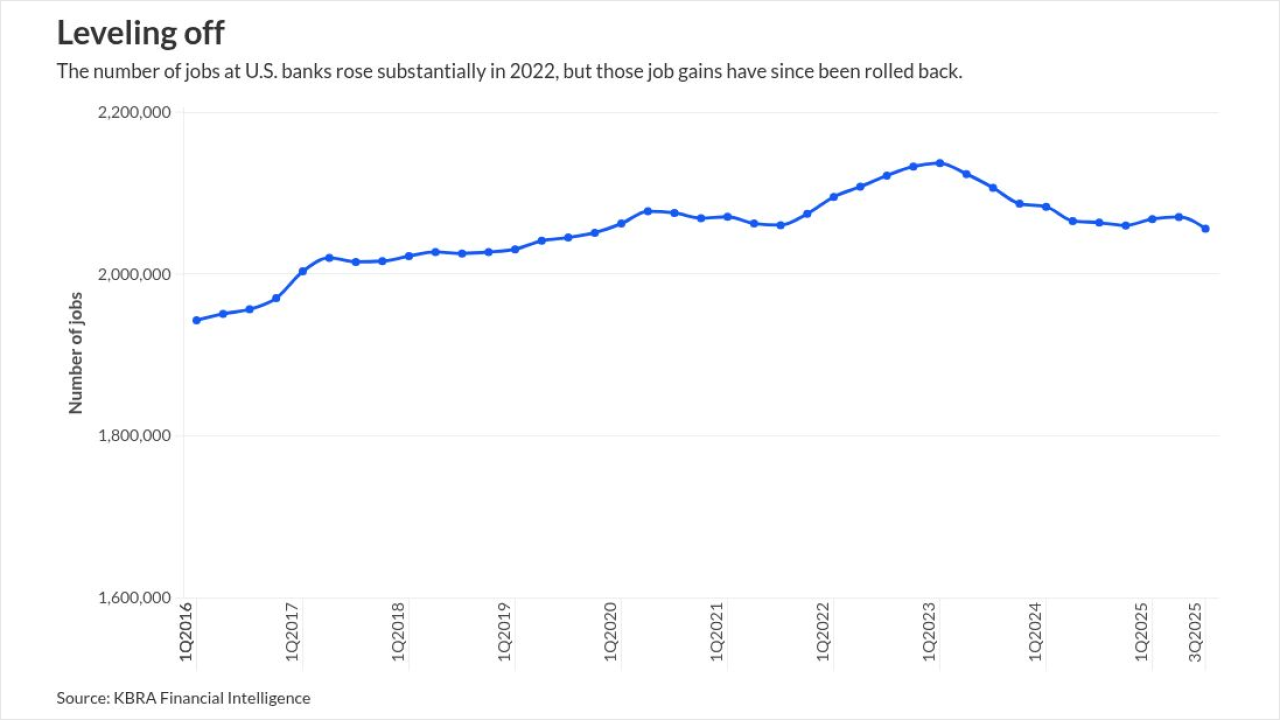Two providers of financial data on people with little credit history say one's purchase of the other will improve the way they serve companies that extend loans to the underbanked.
MicroBilt Corp., which serves financial companies and small businesses that extend credit, said its acquisition of the Annapolis, Md., alternative credit bureau Pay Rent Build Credit Inc. will allow it to deliver more data to its clients and help them qualify more customers for loans.
PRBC's system for creating credit histories from rent and utility payment histories has attracted help from the Ford Foundation, which will continue working with the company, and the Center for Financial Services Innovation, which is considering doing so.
Arjan Schutte, an associate director and the manager of investments for the Center for Financial Services Innovation, a nonprofit affiliate of Chicago's ShoreBank Corp., said he was "delighted" with the potential impact of the acquisition, announced Tuesday, on underbanked consumers.
PRBC has been a relatively small but important "market maker for the underbanked financial services industry," he said. "While they've done remarkable things, it's been hard for them to do as much as a start-up. Being acquired by MicroBilt will give them much greater heft."
Bob Raleigh, the chairman of MicroBilt, a Kennesaw, Ga., division of Bristol Investments Ltd., said offering his clients PRBC's data would "accelerate" the availability of financial services to the underbanked.
"It will enhance our current customers' ability to attract a new customer base, and the degree to which we can offer these services to noncustomers certainly gives us a chance to expand our market," he said.
MicroBilt's small-business clients will have the "power to evaluate and offer credit based on these expanded criteria."
In addition, combining PRBC's capabilities with MicroBilt's will help the alternative credit bureau "serve more consumers, either directly or indirectly," Mr. Raleigh said.
"Before, they were virtually an exclusively consumer-facing product, and we think integrating them into the brand of MicroBilt will give them a chance to face both consumer" and business-to-business clients.
MicroBilt has about 125,000 clients. Mr. Raleigh said auto dealers are its "number one sector," and community banks and credit unions are a "significant component of our business."
PRBC keeps records of rent, cable, phone, electric, and other recurring bill payments by people with little or no traditional credit history, to help them establish creditworthiness.
Mr. Raleigh said these histories make people into better prospects for the businesses that use MicroBilt data, including "buy here, pay here" auto dealers, furniture stores, landlords, community banks, and credit unions.
Michael Nathans, PRBC's founder, who will now be its chief development officer, said it will benefit from MicroBilt's relationships with community banks and credit unions.
The financial institutions are "such an important user group to the PRBC data set," he said. "With their distribution in place, it would really speed our ability to distribute our services" to banks and credit unions.
"The fact that we are now part of a company that has the kind of revenues, the kind of infrastructure and distribution and staff" of MicroBilt "puts us in a position to accomplish this so much better," he said.
Mr. Nathans has also been named a MicroBilt executive vice president and director.
The Ford Foundation has agreed to extend a $250,000, five-year "recoverable grant," or interest-free loan, he said. "What Ford is satisfied with is that MicroBilt will continue to operate PRBC the way it was operating before, by making sure that people who are low and moderate income get access to this service."
The foundation did not return calls for comment by press time Wednesday.
Mr. Schutte of CFSI said the center, which had an observer seat on PRBC's board, has been offered a similar position by MicroBilt but has not decided whether to accept it.
According to Mr. Schutte, other potential buyers of varying sizes had approached PRBC in the past. MicroBilt "has a nice combination of being big enough to give financial stability and greater security to PRBC, but not so big that PRBC is a tiny little addition" to MicroBilt's business.
In return, "PRBC has substantial public recognition and provides MicroBilt with significant visibility."
The acquisition also gives Pay Rent Build Credit "a financially stable home" during the economic downturn, he said.
The acquisition came six months after MicroBilt made an initial equity investment in PRBC. Neither company would disclose the purchase price or the amount of the initial investment.
John R. Ulzheimer, a veteran of Fair Isaac Corp. and Equifax Inc. and now the president of educational services at the lead generator Credit.com Inc., raised concerns about the state and federal credit bureau regulations that MicroBilt will now have to follow.
"Becoming a credit bureau is a very cumbersome thing," but otherwise combining the two companies "makes perfect sense," he said.
MicroBilt's services "have always been attractive to small-volume credit users," Mr. Ulzheimer said. "Those are clients that the credit bureaus have forgotten about, because they're just too small … and that, frankly, is the PRBC market."
Integration challenges aside, Mr. Ulzheimer said that MicroBilt could mount a successful grass-roots challenge to the "big three" credit bureaus: Equifax, Experian Information Solutions Inc., and TransUnion LLC.
"If this means that MicroBilt can convince at least its existing clients to start looking at PRBC reports as an alternative to the big three, that's a good bottom-up approach," Mr. Ulzheimer said. "If you aggregate all of those little clients, then the business is quite significant. It's low-hanging fruit that no one's paying a whole lot of attention to, except MicroBilt and PRBC."





